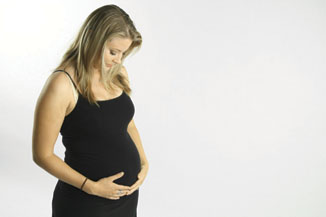Antidepressants used in pregnancy linked to epilepsy
In Clinical
Follow this topic
Bookmark
Record learning outcomes
Mothers who take antidepressants during early pregnancy seem to give birth to children at increased risk of epilepsy, Pharmacoepidemiology and Drug Safety reports.
In a study w hich included all 734,237 live single births between 1997 and 2008 in Denmark, researchers compared children of mothers who used antidepressants sometime from 30 days before pregnancy until birth with controls who did not take antidepressants from six months before pregnancy until after birth.
hich included all 734,237 live single births between 1997 and 2008 in Denmark, researchers compared children of mothers who used antidepressants sometime from 30 days before pregnancy until birth with controls who did not take antidepressants from six months before pregnancy until after birth.
Overall, 1.7 per cent of children were exposed to antidepressants during or in the 30 days before pregnancy and 0.8 per cent were diagnosed with epilepsy during the 6.7-year follow-up.
Children exposed to antidepressants during pregnancy were 27 per cent more likely to be diagnosed with epilepsy than controls and 14 per cent more likely to develop epilepsy if their mothers did not also have a hospital diagnosis of depression. The children of mothers diagnosed with depression in the six months before or during pregnancy were 71 per cent more likely to develop epilepsy. The risk of developing epilepsy did not seem to depend on the class of antidepressant.
The effect of antidepressants seemed to be most marked in early pregnancy. Children whose mothers took antidepressants from two to six months before, but not during, pregnancy were more likely than controls to be diagnosed with epilepsy. Those children whose mothers used antidepressants sometime in the first trimester and the 30 days before pregnancy were 34 per cent more likely to have epilepsy than controls.
No increased risk emerged in late pregnancy or in both early and late pregnancy. Further studies are needed to replicate the findings and €disentangle€ the effects of medications and indication.
(DOI:10.1002/pds.4072)
